Search Results
Showing results 1 to 20 of 23

What Sort?
Source Institutions
In this activity (on pages 22-33), learners do the kind of work genetic scientists do, sorting and comparing (images of) genetic material strands called chromosomes.
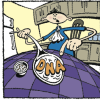
Is That DNA in My Food?
Source Institutions
In this activity, learners extract DNA from wheat germ. Use this activity to introduce learners to DNA, biotechnology and genetic engineering.
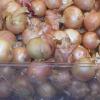
Isolation of DNA from Onion
Source Institutions
This laboratory exercise is designed to show learners how DNA can easily be extracted from onion cells. It includes an optional test for the presence of DNA.
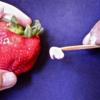
A Simply Fruity DNA Extraction
Source Institutions
In this activity, learners extract DNA from a strawberry and discover that DNA is in the food they eat.
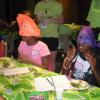
This Bitter Be Good
Source Institutions
In this health and genetics activity, learners determine whether tasting the bitter compound PTC (phenylthiocarbamide) influences which vegetables a person likes.
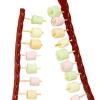
Reading DNA
Source Institutions
In this activity, learners use edible models of the DNA molecule to transcribe an mRNA sequence, and then translate it into a protein.
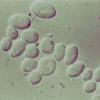
Yeast DNA Extraction
Source Institutions
This laboratory exercise is designed to show learners how DNA can easily be extracted from yeast using simple materials.
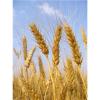
Wheat Germ DNA Extraction
Source Institutions
This laboratory exercise is designed to show learners how DNA can easily be extracted from wheat germ using simple materials.
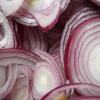
Onion DNA Extraction
Source Institutions
This laboratory exercise is designed to show learners how DNA can easily be extracted from onion cells using simple materials.
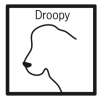
A Recipe for Traits
Source Institutions
In this genetics activity, learners create and decode a “DNA recipe” for a dog by randomly selecting strips of paper that represent DNA.

Thymus DNA Extractions
Source Institutions
This laboratory exercise is designed to show learners how DNA can be extracted from a chunk of thymus (sweetbread) or liver.
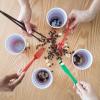
Bean-Counter Evolution
Source Institutions
In this simulation game, learners play as predators equipped with genetically different “mouths” (utensils) and hunt for “prey” (assorted beans).
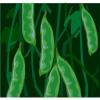
Lima Bean Bacteria DNA Extraction
Source Institutions
This laboratory exercise is designed to show learners how DNA can easily be extracted from lima bean bacteria. This experiment requires the use of a centrifuge (not included in cost of materials).
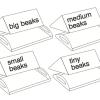
Clippy Island: An Investigation into Natural Selection
Source Institutions
In this activity, leaners will observe the process of natural selection on a population of birds called 'Springbeaks' over four seasons of breeding on an isolated environment called 'Clippy Island.' L
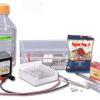
Colorful Electrophoresis
Source Institutions
In this activity, learners follow step-by-step instructions to build a gel electrophoresis chamber using inexpensive materials from local hardware and electronic stores.
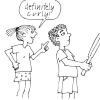
Alike and Different
Source Institutions
This activity (on pages 7-13) has pairs of learners survey an array of similarities and differences between them.
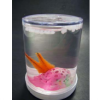
Coral Spawning Globe
Source Institutions
This activity models the mass coral spawning event that takes place at Flower Garden Banks National Marine Sanctuary every August.
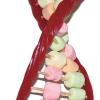
Have Your DNA and Eat It Too
Source Institutions
In this activity, learners build edible models of DNA, while learning basic DNA structure and the rules of base pairing.

Making Babies
Source Institutions
This activity is designed to introduce learners to genes, genotypes and simple inheritance patterns.
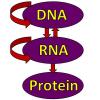
Protein Factory
Source Institutions
In this activity, learners take on the role of various parts of the cell in order to model the process of protein synthesis.
